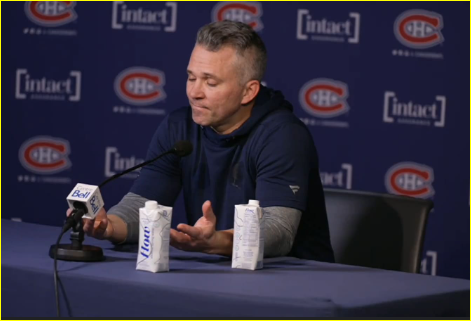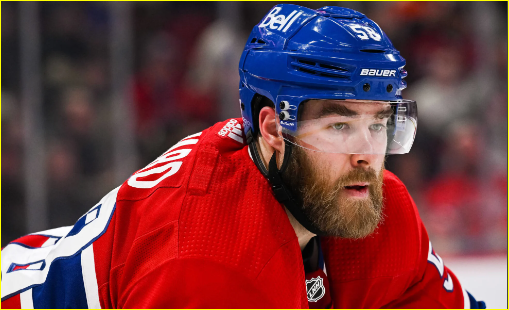You’ve nailed one of the central challenges the Canadiens are facing: it’s not just about young talent but having a seasoned, steadying presence to guide them. The Habs’ current situation highlights how valuable a leader like Shea Weber was, both for his on-ice skills and for his influence in the locker room. His absence seems to leave a void, especially in those crucial, tough moments when younger players benefit most from guidance and stability.
Rebuilds can go sideways without the right mix of veterans—teams like the Sabres and Oilers are proof of how challenging it is to build a culture of consistent success. The Canadiens have plenty of skill but lack that reliable, experienced presence who can offer perspective and leadership to a young team facing struggles. It’s not just about skill; it’s about mental toughness and maturity, especially in a hockey market as intense as Montreal.
Applying this logic to CF Montréal also makes sense. Like the Canadiens, they’re working with a younger roster that could use experienced players to help navigate challenges and add resilience. It’s a tough balance, but both organizations could benefit from reinforcing their lineups with veterans who bring leadership as well as skill to their teams.
The Canadiens are at a critical point where it’s clear that adding the right veterans is as essential as bringing in skilled players. A strong forward, experienced goalkeeper, or right-handed defender would help, but they need to be more than just experienced players—they need to be true mentors. Losing Jake Allen was significant; he brought stability and guidance, and the void he left is evident. Montreal needs leaders who can shoulder responsibility on and off the ice, especially for a team with young players who are still learning the ropes.
Some possible moves could include:
Targeting Free-Agent Veterans Look for free agents with leadership experience who have been through both the highs and lows of a season. These players don’t necessarily need to be stars but should be individuals known for work ethic, resilience, and character.
Trades for Character Players: When considering trades, the Canadiens should focus as much on character and leadership as on skill. Think of players with reputations as “locker room guys” who can bring experience and calm to a young team. Promoting Internal Leadership Development: For young leaders already in the system, give them the tools and support to grow. Consider captaincy for emerging players who can fill some of the leadership void left by Weber and Allen. Assigning a Leadership Coach or Mentor: It might help to bring in a leadership coach or mentor who can work with players in a supportive, advisory role. This could be a former player or someone who specializes in team dynamics and leadership. Bring in Veterans Who Know the Market: Montreal’s intense hockey environment isn’t for everyone. Acquiring players who understand the demands of this market—especially those with experience in Canadian teams—can reduce the learning curve and provide crucial insight to younger players.
Montreal’s young core has potential, but unless they’re guided by players with experience in winning—and even in dealing with losing—they risk stalling in their development. Adding mentors who can inspire confidence and professionalism will be just as critical as adding scoring or defensive depth.
https://twitter.com/sickpodnhl/status/1856713985745175025?ref_src=twsrc%5Etfw%7Ctwcamp%5Etweetembed%7Ctwterm%5E1856713985745175025%7Ctwgr%5Efecda9cc3bc54cd3d452b3106b76561250a185ce%7Ctwcon%5Es1_&ref_url=https%3A%2F%2Fdose.ca%2F2024%2F11%2F13%2Fthe-canadiens-face-a-leadership-crisis%2F
You’re absolutely right. When the Canadiens made that run to the Stanley Cup Final, it wasn’t just about talent—it was the steady, veteran presence of guys like Corey Perry, Eric Staal, and Shea Weber that made the difference. Those players weren’t just skilled; they provided a blueprint for the younger guys on how to compete, stay resilient, and play under pressure. They understood the grind of the playoffs, the importance of each game, and the mental strength it takes to push through adversity.
Trading players like Johnathan Kovacevic and Sean Monahan, who were growing into steady presences, leaves a gap that raw talent alone can’t fill. Veteran players are essential in stabilizing the locker room when things get tough, serving as sounding boards for younger players and embodying the commitment that inspires others to follow suit.
What Montreal needs now is precisely what Martin St-Louis has hinted at—those “tree players” who set roots and show the path forward, even if they won’t be around when the team finally reaps the rewards. These are the players who impart the culture of professionalism and resilience, giving young players a framework to follow and instilling habits that persist beyond a single season.
To address this, Montreal could look to:
Re-acquire Veteran Depth at Key Positions: Players like Staal or Perry might not be available, but the Canadiens can still find veterans with a reputation for strong work ethic and character. Even if they’re only short-term signings, their impact on young players’ growth is invaluable.
Prioritize Balance Over All-Out Youth: While a youth-driven rebuild is important, a balanced roster where veterans complement the younger players is essential for stability. Young players need role models, and without a few experienced voices, the team may continue to struggle through highs and lows without the guidance to get them through.
Identify Internal Leaders and Develop Them: Players with some tenure in the organization, like Nick Suzuki and Joel Edmundson (if he remains healthy), should be encouraged to grow into bigger leadership roles. Mentoring programs that support young captains can be pivotal, as they’re the bridge between established veterans and the next wave of talent.
Bringing back that mix of veteran presence is essential if Montreal hopes to turn promising talent into sustainable success. The Habs need those “tree players” not just to win games now, but to build a foundation that will support their growth for years to come.



